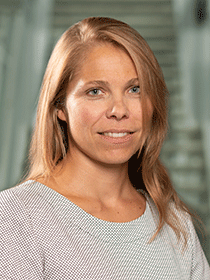Online Seminar
The Standing Group on the EU (SGEU) of the European Consortium for Political Research (ECPR) is glad to invite you to its next online seminar on Thursday 16 March 2023.
Convened and chaired by Professor Jonathan Zeitlin (University of Amsterdam) and Professor Nathalie Brack (Université libre de Bruxelles), the seminar takes place online and allows researchers to present their work and get feedback from a discussant and a multidisciplinary audience. The seminar series is open to anyone interested, who must register for free through the ECPR website here. Participants will need a free MyECPR account to register.
Date and Registration
16.03.2023 16:00-17:30 CET / 15:00-16:30 GMT – Register here
Abstract
EU asylum and migration policies are bound by a lack of coordination as illustrated by the quasi absence of major policy reform since 2013 in the Common European Asylum Support System. Yet the pandemic has been marked by a digital turn in the provision of public services to migrants and asylum. While a few initiatives were in place before the pandemic, the impossibility of administrations to be in contact with vulnerable populations, awaiting for crucial administrative decisions, has led European administrations to accelerate the digital turn especially at the municipality level.
Through the comparative analysis of four European cities (Paris, Palermo, Malaga and Larissa), we show that of a coordinative discourse on humanitarian civic duty in Europe emerged and characterized all the processes studied. Coordinative Europeanization, however, unfolded in varying ways in the different cities. In France and Greece (Paris and Larissa), digitalization initiatives were predominantly centralized, with the discourse of humanitarian duty serving the objective of coordinating sub-national and sub-local actors (public administration and civil society) to implement the national strategies. In Italy and Spain, on the other hand, we discerned a stronger impetus at the sub-national level, a bottom-up process that gained momentum through inter-crisis learning, and by mobilizing the EU as a legitimizing actor in their endeavors.
Speakers:
Sarah Wolff is Director of the Centre for European Research, Reader in European Politics and International Relations at Queen Mary University of London, Director of the QMUL Master in International Relations at the University of London Institute in Paris and Principal Investigator for the Jean Monnet Centre of Excellence NEXTEUK project on the future of EU-UK Relations. Her research has focused on European integration, public policy and international relations, with particular attention to EU-UK relations, EU and UK migration and border policies, EU-Islam and EU-Middle East and North Africa. Before joining academia, Dr Wolff worked at the European Commission and the European Parliament. She is also a Senior Research Associate at the Netherlands Institute of International Relations (Clingendael) and a Visiting Professor at the College of Europe. She has recently co-edited one of the first special issues in the field on EU responses to the Covid-19 Pandemic for the Journal of European Integration, and is Editor of the journal Mediterranean Politics. Her latest book is Secular Power Europe and Islam: Identity and Foreign Policy (University of Michigan Press, 2021).
Federica Zardo is Senior Research Fellow at the Danube University Krems in the Department for Migration and Globalisation and lecturer at the University of Vienna. She is a political scientist working at the intersection between International Relations and Public Policy, with an empirical focus on the EU´s migration policy and EU external action. She is currently the PI of the MigFund project that studies change in EU funding tools for migration and asylum. Her research has been published in outlets such as the Journal of European Public Policy, Journal of Ethnic and Migration Studies, Geopolitics, International Politics, Mediterranean Politics and the European Foreign Affairs Review. In addition to her research activities, she teaches courses on the EU foreign policy, European integration and EU migration policy at the University of Vienna.
Discussant:
Leila Hadj Abdou is a Part-Time Assistant Professor at Migration Policy Centre, at the Robert Schuman Centre for Advanced Studie (EUI). Previous to this appointment she has already worked for several years at the MPC as a Research Fellow with a focus on migration governance from a global and regional perspective. She currently also holds a position as a policy officer at the City of Vienna in the Department for Integration & Diversity.
